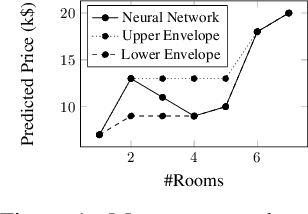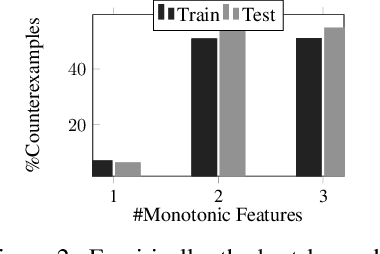Counterexample-Guided Learning of Monotonic Neural Networks
Paper and Code
Jun 16, 2020



The widespread adoption of deep learning is often attributed to its automatic feature construction with minimal inductive bias. However, in many real-world tasks, the learned function is intended to satisfy domain-specific constraints. We focus on monotonicity constraints, which are common and require that the function's output increases with increasing values of specific input features. We develop a counterexample-guided technique to provably enforce monotonicity constraints at prediction time. Additionally, we propose a technique to use monotonicity as an inductive bias for deep learning. It works by iteratively incorporating monotonicity counterexamples in the learning process. Contrary to prior work in monotonic learning, we target general ReLU neural networks and do not further restrict the hypothesis space. We have implemented these techniques in a tool called COMET. Experiments on real-world datasets demonstrate that our approach achieves state-of-the-art results compared to existing monotonic learners, and can improve the model quality compared to those that were trained without taking monotonicity constraints into account.
 Add to Chrome
Add to Chrome Add to Firefox
Add to Firefox Add to Edge
Add to Edge